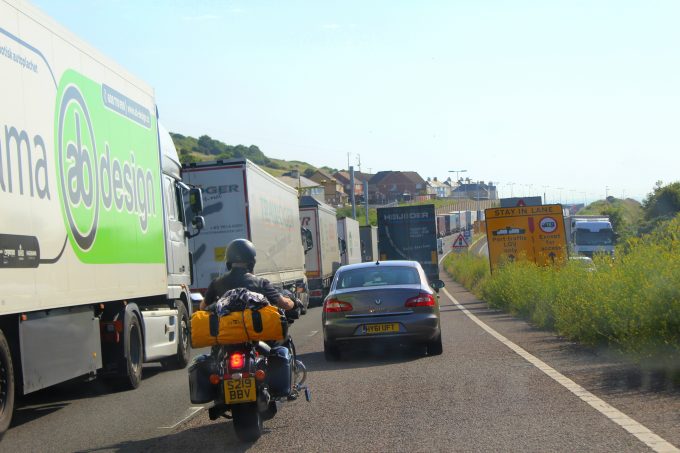'Aging-out' in European haulage could lead to a 'demographic time-bomb'
Hauliers must recalibrate their route networks to alleviate the strain on Europe’s beleaguered road transport ...

Hauliers on both sides of the Channel have reacted with dismay at the UK’s announcement to discontinue access rights for EU operators transiting between the UK and non-EU states.
This will further restrict the number of available drivers from next year, they say.
A letter from the UK Department of Transport (DfT) seen by The Loadstar notes the changes mirror those prohibiting haulage of goods between EU and third countries for UK operators, and that they are due to take effect from 1 January, pending parliamentary approval.
One haulage operator told The Loadstar: “Restricting access to EU hauliers during a time of extreme scarcity of capacity in the UK is an ‘interesting’ approach.”
Although the haulier said the move would not affect his operations, he added: “It will affect the many EU-based hauliers which do more of the above, or that want to increase domestic trips when domestic capacity is in short supply.”
The letter appears to hit out at the failure of the EU and the UK to include provisions on international haulage in the Trade and Co-operation Agreement (TCA), noting that the government “regrets” the move, but describes it as a “necessary consequence” of the TCA.
Should parliament approve the decision, and given the government’s sizeable majority, this appears a mere formality, EU operators will require ECMT permits for such transport.
The letter adds: “In respect of cabotage rights, the UK has already reduced the number of transports permitted by EU operators within the UK within seven days of a laden entry from three to two; this is further to the agreement and this requirement is being enforced.
“The same regulations will also terminate allowances of one cabotage within three days of unladen entry and access for journey legs within the UK related to combined transport.”
The haulier said the changes would be applicable to all EU-based hauliers with trucks registered in member states, adding that operating a UK office would make no difference, as it would be only UK-registered trucks that could operate without cabotage restrictions.
And it seems likely that the further restriction of cabotage transport will heighten anxiety in the European transport sector, with a delegation of EU hauliers calling for action.
Addressing UK transport secretary Grant Shapps, the delegation said: “We are urging you to enhance cabotage legislation for European hauliers. This will result in more support to UK haulage and increase productivity with the same truck. We also urge an increase in the number of work permits in this sector for non-British citizens.”
Comment on this article
Victor Jones
October 06, 2021 at 2:52 pmCuts both ways – I note they are not mentioning any lobbying the EU for reciprocal arrangements
I suspect the reason is they will get nowhere in the protectionist racket that is the EU – the UK haulage sector has always played by the rules and has suffered as a result
Same as in the fishing industry
Richard Lucas
October 11, 2021 at 8:29 pmIt’s not symmetrical at all.
The UK needs EU logistics muscle far more than the EU needs UK drivers. There isn’t a chance the EU will make unilateral concessions. If Frost et al stuck to the agreements they signed up to, and Tory politicians condemned the harassment/ deportation of EU citizens on British borders, I suppose there might well be some EU willingness to make concessions, but so far there is little good will being generated.
The Johnson government chose to end freedom of movement, now it is reaping the consequences. Other alternatives were on the offer from the EU.
I’m writing from Poland, there are no shortages in the retail sector here.
Johnson wanted “Have Cake, Eat Cake”
He’s delivering “Want cake, No cake”
Victor Jones
October 14, 2021 at 2:00 pmGood – this means less LHD EU trucks on the road and will mean more work and better rates for UK firms, safer roads and will largely put an end to the exploitation of EU-based drivers